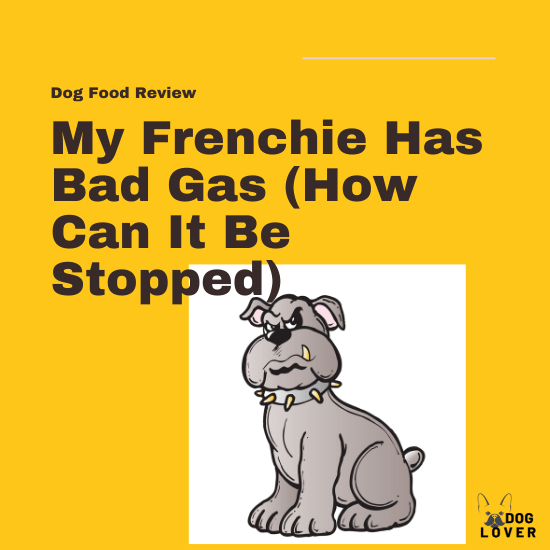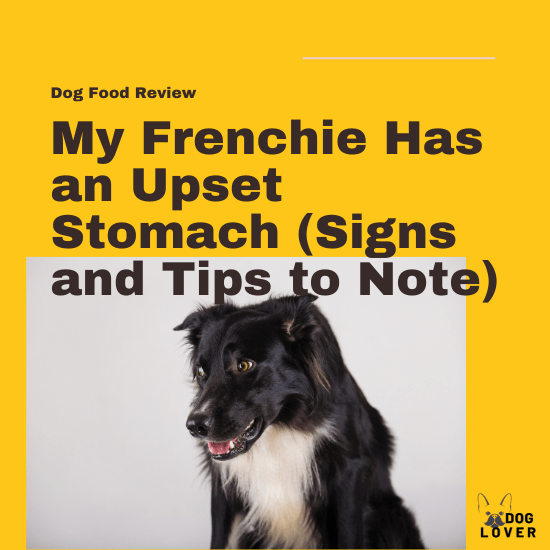Food allergies for dogs is a thing to watch on.
This is because they pose a challenge to dogs preventing them from enjoying life.
Food allergies come in various forms.
It’s therefore prudent that one is careful to notice early and provide the necessary remedy.
Welcome to a full unpack!
About Food Allergies for Dogs
Dogs’ food allergies result from food proteins that trigger an adverse immune response.
This causes the dog’s body cells to produce histamines compounds that cause skin irritation and other allergy-related symptoms like weakness, hyperactivity, abdominal pain, and vomiting.
Dogs react differently to the allergy-causing components
How to tell if your dog has food allergies?
Having a dog with food allergies can be frustrating to both the dog parent and the pet.
It can be more frustrating if one cannot tell of the symptoms.
Keenly read the allergy symptoms listed below to help your dog.
- Vomiting
- Diarrhea
- Itchy skin
- Hyperactivity
- Weight loss
- General weakness
- Aggression
- Red sore skin
- Sore tummy
- Excessive wind
- Chronic ear inflammation
- Hair loss
- Hot spots ( lesions on the skin on the head, hips, or around the chest)
Rarer Symptoms of Food Allergies in Dogs
Seldom do dogs present the following symptoms as a result of food allergy.
These symptoms occur in severe cases.
- Secondary yeast or bacteria
- Ear-canal infection
- Swollen eyelids and throat
- Postnasal drip
- Loss of fur
- Sebum discharge
12 Common Food Allergies for Dogs
Read below to discover the 12 common food allergies for dogs.
Poultry (including chicken)
Dogs can react to the protein present in poultry foods.
These include all poultry meat, including chicken.
Poultry allergy for dogs means that the dog’s immune system overreacts to the protein in all poultry meat.
Feeding your dog on poultry products frequently increases the chance of developing a poultry allergy.
Wheat/gluten

Wheat allergy for dogs is not very common, like meat allergy.
A wheat allergy would mean that a dog’s immune system overreacts to the carbohydrate in the wheat.
Being a rarer food allergy for dogs, one should seek the advice of a vet before concluding.
Soy

Soy is a very nutritious food for dogs.
However, the protein in the soy poses an allergy threat for dogs.
Soy is a good source of vitamin E in dogs.
Most dogs with food allergies find soya a tasty food.
Too much soy can lead to estrogen and hormonal imbalance
Corn
Corn allergy can pose a challenge in diagnosing.
This is because corn and corn products are an everyday dog diet.
Corn allergy results from accumulated corn in the dog’s body over a long period.
You should therefore feed corn sparingly to avoid accumulation
Rice
Dogs can be allergic to rice due to the carbohydrates in rice. Rice also contains protein which a dog can be allergic to.
The allergy develops over time as the dog feeds on rice.
You can diagnose rice allergies through blood tests, and it occurs 24 hours after feeding.
Fish (including salmon)
Fish food dog allergies are rare.
Most dogs sensitive to beef and chicken protein find fish comfortable.
The symptoms to look out for include licking of feet, itchy skin, and hives
Pork
Pork stands for all meats from pigs.
These include bacon, ham, gammon, and sausage.
Dogs can react to over-processed pork.
Uncooked pork can contain the parasite trichinella spiralis larva, which causes vomiting, diarrhea, and fever.
You should hence avoid raw pork.
You should also thoroughly wash the pork before cooking.
Read our article on Can Frenchies Eat Pork? The Risk and Benefits of Pork to Dogs
Rabbit
Dogs are not allergic to rabbits themselves but the source of allergy stems from rabbit droppings which have a parasite called coccidia.
The parasite causes infection hence the allergic symptoms, including congestion, wheezing, and lethargy.
Beef
Beef is typical dog food.
Most dog parents love feeding their dogs on beef.
Unfortunately, regular consumption increases the probability of a dog developing a beef allergy.
Beef allergy is caused by the dog’s immune system overreacting to the protein in the beef.
One can therefore offer beef irregularly.
Lamb
Dogs with lamb allergy present symptoms of extreme scratching and licking
Lamb allergies can occur from a previously well-tolerated protein. Dogs can develop allergies due to long-term consumption.
Lam, however, contains a lot of unsaturated and essential fats.
Trial elimination is a treatment method.
We recommend the vet’s diagnosis.
Egg
For egg allergy, it simply means that the dog is reacting to the protein in the egg.
Allergic symptoms include inflamed skin, gas, and wheezing.
You should read food labels to ensure that eggs are not addictives.
You could also withdraw eggs from a dog’s diet.
Read our article on Can Dogs Eat Raw Eggs? What You Need to Know
Dairy
Dairy allergy for dogs can be confused with lactose intolerance.
While lactose intolerance has to do with indigestion of lactose, dairy allergy has to do with overreaction to the protein in the milk.
Lactose intolerance will present itself with indigestion symptoms only.
The dairy allergy will present other skin irritation, baldness, and lesions.
Read our article on Can Frenchies Drink Milk? Is Milk Healthy for Dogs
Dog Behavioral Issues from Food Allergies
Food allergies can result in a dog having behavioral issues.
This can result from overfeeding or reactions to the chemical in the food.
The behavior can be in any or all of the following forms:
- Hyperactivity
- Eating their wastes,
- Stealing food
- Seeking attention
- Aggression
- Stress
- Digging
- Mood swings
It is essential to understand that food allergy influences a dog’s behavior. A sudden change of behavior should prompt a quick response.
How Do You Prevent Food Allergies in Dogs?
The following considerations will help you prevent food allergies in dogs:
- Seek the help of a vet who will advise on the anti-histamines to be administered to your dog.
- Take good care of your dog’s skin to prevent allergens from inhabiting it. A vet can recommend the best cleaning items. Regular brushing and smoothing the skin keep off dander.
- In case your dog has any skin infections ensure that it is treated completely.
- Feed your dog with protein-containing food with moderation.
- Withdraw the food that triggers allergic symptoms on your dog
- Feed your dog with clean food free from pathogens. Cooked meat is safer than raw.
- Feed your food allergic dog on diets recommended for dogs with food allergies.
- You can pre-test your dog’s reaction to new food to eliminate the allergic foods.
- Keenly read the ingredients in your dog’s food.
Long-Term Effects of Dog Food Allergies
Long-term food allergy results from allergic cases that go untreated for a long time.
This can result from misdiagnosis of the allergic food, hence the continuous provision of the food with an allergic substance.
The following are presentations for long term dog food allergies:
- Severe skin infections
- Behavioral change
- Stress
- Anaphylactic shock
- Organ failure
- Poor quality of life.
Early diagnosis and treatment is advisable
Dog Food Elimination Diet
Food allergy symptoms can be seen 30 minutes to 2 hours after feeding the food.
Withdrawal of the specific food should follow with keen observation of whether the situation improves.
In its place, choose another protein and carbohydrate source.
Consult a vet if the problem does not improve.
Dog Food Allergy Treatment
The following remedies will help in treating dog food allergies:
- Consult your veterinarian for the best advice.
- Eliminate the diet you suspect is causing the allergy.
- Ensure good grooming
- Read the ingredients of your dog’s food to avoid subtle allergic substances.
- Ensure that protein is fed in moderation as overfeeding can lead to food allergy.
What is the most common ingredient in dog food that causes allergies?
Protein is the most common ingredient in dogs food that causes allergies.
Meat and some plant food like soy have protein.
Feeding in moderation may be safe for your dog.
How can I tell if my dog is allergic to his food?
If a dog becomes uncomfortable after repeatedly eating some specific food, you can suspect that it could be allergic to it.
Consult your veterinarian for an appropriate test.
How do you prevent food allergies to dogs?
After knowing the food that causes allergic reactions to your dog, you eliminate the food from the dog’s diet.
You should provide food with moderation under high levels of hygiene.
What are the worst dogs for allergies?
Some dog breeds are more prone to allergies than others. These are a few examples of the worst dogs for allergies:
Final Thoughts
You must protect your dog against food allergies.
It is sometimes challenging to pinpoint the specific food allergy for your dog.
A dog can be allergic to several foods in the diet, making diagnosis even more complex.
Working closely with your veterinarian helps make an early diagnosis and treatment.
Introduce food gradually to your dog as you keenly watch their behavior over continuous
consumption of the food.
In case of a diagnosed food allergy for your dog, work towards a prompt treatment to prevent severe effects of food allergies on your furry friend.


